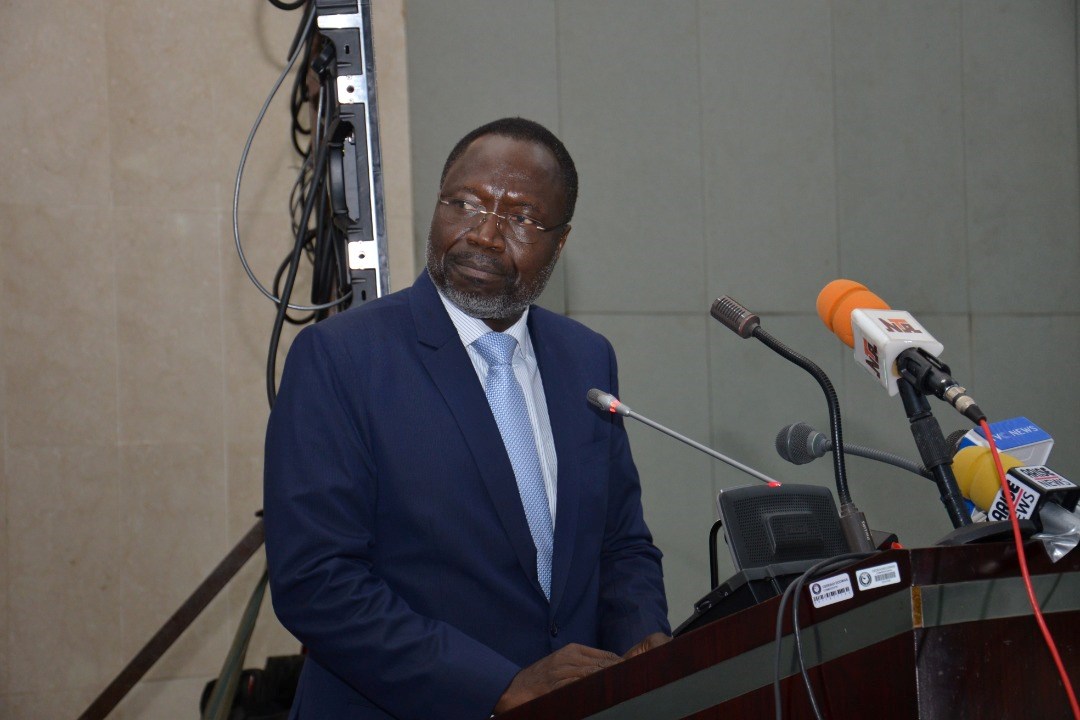West African states agree on establishing regional peacekeeping force
African countries are falling victim to the expansion of terrorist activity including Mali, Burkina Faso, Niger, and southward to the Gulf of Guinea.
-

Omar Alieu Touray (Ghana Business News)
At a summit in Nigeria, Omar Alieu Touray, president of the ECOWAS commission, confirmed that leaders in the commission decided to act to "take care of our own security in the region" and are "determined to establish a regional force that will intervene in the event of need, whether this is in the area of security, terrorism and restore constitutional order in member countries."
Along with being subjected to military coups in the last two years, African countries are falling victim to the expansion of terrorist activity including Mali, Burkina Faso, Niger, and southward to the Gulf of Guinea.
Touray said the fact that national armies are cooperating with external actors like France and the UN would "restructure our security architecture," adding that the planned regional force will be considered by defense chiefs in late 2023. Its funding, however, could not be fully reliant on voluntary contributions.
Read next: After Mali, Burkina Faso suspends French broadcaster RFI
On a separate but relevant note, Touray on behalf of the West African leaders in the commission urged Mali's junta to release the 46 troops from Ivory Coast that it has held hostage since July. "We ask the Malian authorities to release the Ivorian soldiers by January 1, 2023, at the latest," he said.
The Gambian diplomat said ECOWAS reserved the right to take action if the hostages were not released by January 1. According to a West African diplomat cited by AFP, sanctions will be enforced by ECOWAS if Mali does not follow through.
The diplomat added that Togolese President Faure Gnassingbe intends to travel to Mali to "demand" their release, as he has been a third party mediating between Mali and Ivory Coast.
The troops were deployed as a backup for the UN peacekeeping mission in Mali, MINUSMA, but Mali believed they were mercenaries attempting to disrupt state security. International humanitarian law describes mercenaries as "civilians taking part in hostilities without being members of the armed forces of parties to the conflict."
Mali and Burkina Faso have been prohibited from joining the decision-making bodies of ECOWAS.
In Mali, "it is essential that constitutional order returns within the planned timeframe," said Touray. ECOWAS has been pressing to observe the progress the country makes during the transition period back to normal, which has a deadline of March 2024 - which would mark three and a half years of turmoil.
Read more: Italy's Meloni slams Macron's France for exploiting African children
The junta in Guinea has been requested to partake in dialogue with all parties and civil society "immediately" Touray to bring back order to the country, but civil society there has been refusing the authorities' offer.
Similarly, "serious concerns" about the security situation in Burkina Faso and the humanitarian crisis there have been circulating at ECOWAS.

 3 Min Read
3 Min Read








